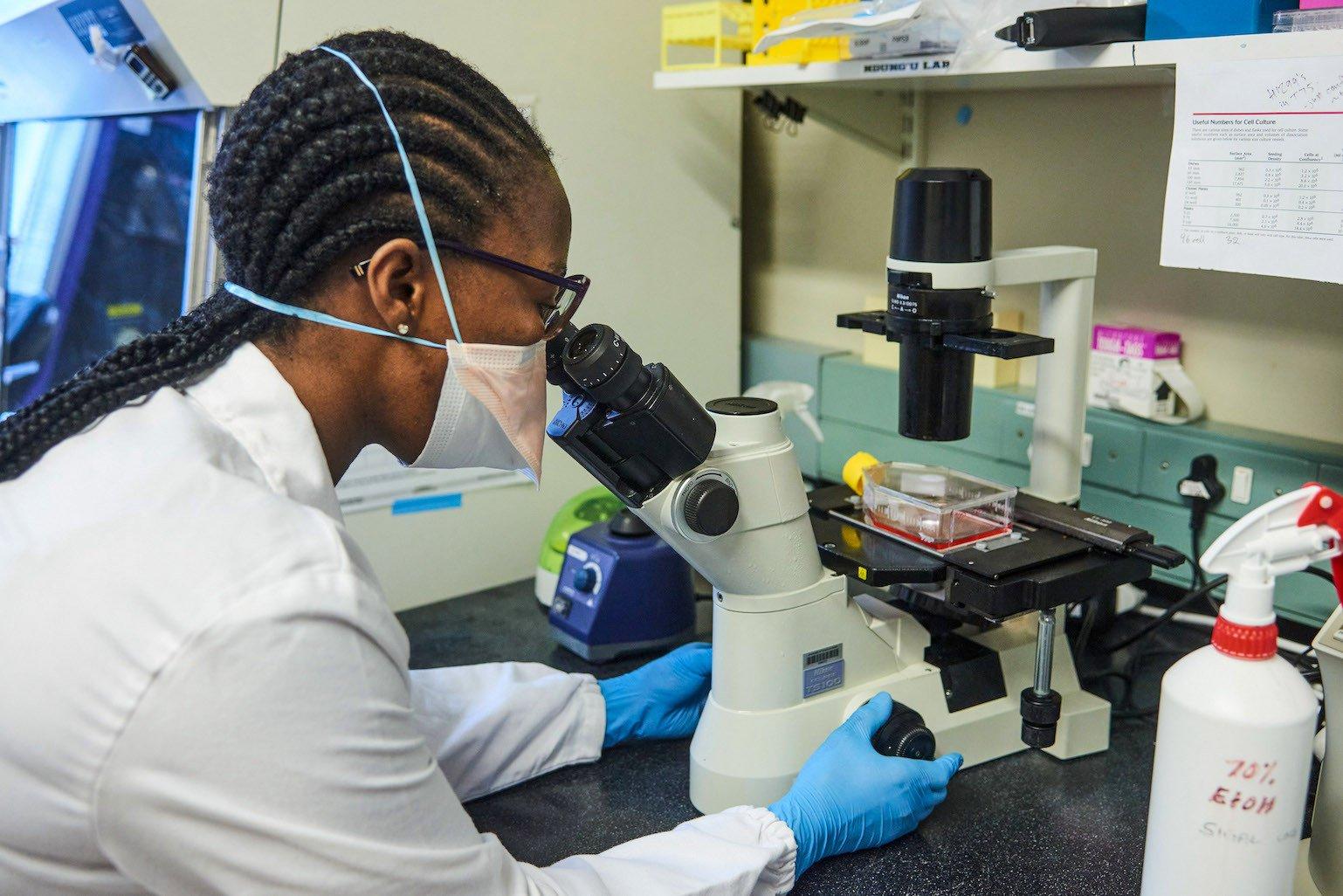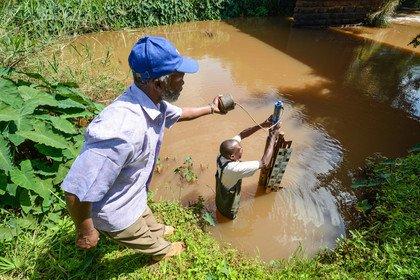
From learning to action: how we’re strengthening Black-led research initiatives
We asked leaders of organisations that support Black researchers about the challenges and opportunities they face. Faith Uwadiae, Ecosystems Manager at Wellcome, explains what we’ve learned so far and how the insights are shaping our next steps.

Waldo Swiegers/Bloomberg via Getty Images
Research funding enables research careers, but funding is often disproportionately inaccessible to people of colour. In the UK, this is particularly true for Black researchers, who are less likely to be awarded research grants than White researchers. Only 3.6% of all academics in England and Wales are Black. This is despite Black people making up 4.4% of the working age population.
Inequity in the funding system perpetuates longstanding disparities in representation and undermines the potential for innovation and progress. Looking at Wellcome’s own funding data, it’s clear we’re part of the problem, which is why we’re taking action.
The work of Black-led organisations
Supportive infrastructure for Black researchers almost exclusively comes from the passion and energy of individual Black researchers, who have identified gaps and created their own support systems.
Collectively, these Black-led grassroots organisations provide invaluable resources such as mentorship, networks, peer-to-peer support, a sense of belonging and culturally sensitive assistance around challenges such as mental health.
These groups vary extensively and include those that convene around specific research disciplines, offer specific support functions or are larger professional bodies. But one thing that’s usually consistent is that they’re volunteer-led and managed on the side of research careers.
This is sustained by good will and dedication. But it’s often not sustainable.
While ambition and dedication allow many groups to survive and thrive, others have launched and closed, meaning Black researchers lose vital support.
Improving sustainability will strengthen and enhance the supportive ecosystem around Black researchers. And that’s why we want to listen to and engage with the people running these organisations to understand what support would be beneficial to advance their work.
How are we supporting these organisations?
In 2023, we hosted a series of externally facilitated focus groups with leaders of grassroots, Black-led organisations. We heard from individuals who have founded or maintained these networks, providing critical support to Black researchers in the UK.
From these conversations, we wanted to learn about the opportunities and challenges for groups to grow and continue, and how funders can work to alleviate these issues.
Participants in focus groups were compensated for sharing their valuable insights and time. Their contributions revealed three types of support which could transform the resilience of initiatives:
1. Support for individual initiatives
- Flexible, multi-year funding that gives leaders autonomy to decide how to use it best.
- Simplified grantmaking processes.
- Access to physical and digital infrastructure.
- Tailored business support.
These findings on the support needed and how to responsibly deliver it have been published in a new report, ‘From Striving to Thriving: Strengthening Black-led initiatives’.
We don’t have all the answers, but we hope these insights help others, alongside us, to explore and improve how their policies and practices impact the careers of Black researchers.
What else is Wellcome doing?
Becoming an inclusive funder is central to our diversity, equity and inclusion strategy. And it’s supported by a series of actions we committed to following an evaluation of our anti-racism programme, published in 2020 [PDF 1.65MB].
Since then, we have launched the Accelerator Awards for underrepresented researchers of Black, Bangladeshi and Pakistani heritage in the UK. We have also appointed Jimmy Volmink as our Executive Director of Equity and developed a new equity department and equity framework to guide all our work.
Our vision is a healthier future for everyone, and we aim to achieve this by embedding equity in everything we do. Crucially, we want to advance inclusive practices that broaden the range of people who lead, participate in and benefit from science.
That’s why we’re building on the findings of this report with a new funding and capacity-building programme delivered in partnership with Do it Now Now. The programme is tailored to support Black-led initiatives through multi-year grant funding of £13,000 to £48,000 for up to three years. Grantees will also receive guidance to strengthen governance and internal systems, develop leadership skills and connect with peers.
We believe diverse research communities generate more relevant and impactful results. We also recognise that dismantling systemic barriers requires collective learning and action. It’s important that funders, universities, sector bodies and policymakers all play a part. Together, we can create equitable research environments for all.


